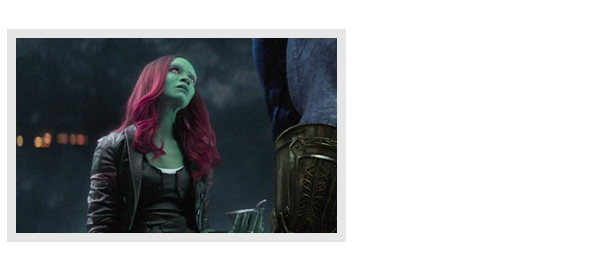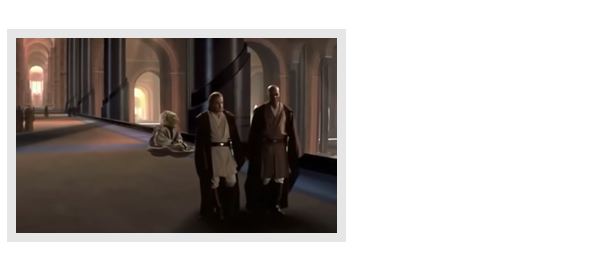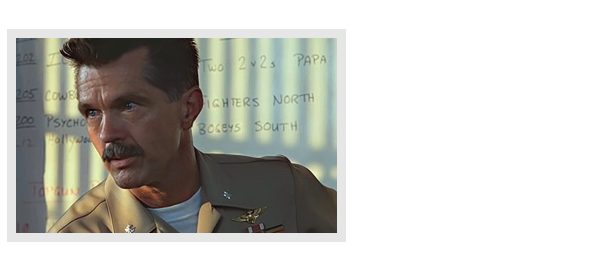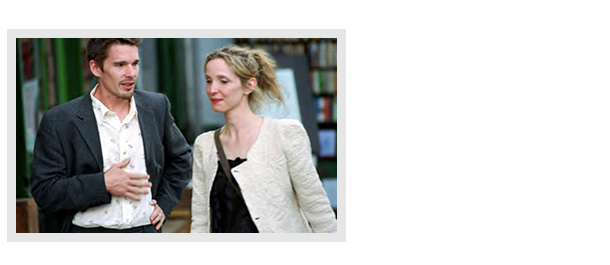The Limits of Humility: 5 Zones of Ego
“I gave you my ship because I saw greatness in you. And now, I see you haven’t got an ounce of humility… You violated a dozen Starfleet regulations and almost got everyone under your command killed… you think you’re infallible...
You think you can’t make a mistake… you don’t listen to anybody but yourself! You don’t comply with the rules, you don’t take responsibility for anything, and you don’t respect the chair. And do you know why? Because you’re not ready for it.”— Admiral Pike to Captain Kirk, Star Trek Into Darkness (2013)
“The true power of humility is missed by many successful people today. Why should I become a wimp? the hard-charging individual wonders… In reality, humility is strength, not weakness. It is the crown of the virtues.”— Humility, An Unlikely Biography of America’s Greatest Virtue by David J. Bobb (2013)
It’s a defining characteristic of three of the most influential lives in history (Socrates, Jesus, and Buddha), said to be one of the most desirable and crucial modern-day leadership traits, its cultivation was central in the minds of two of the highest-selling business authors of all time (Jim Collins linked it to the highest level of corporate CEO success and Stephen Covey came to believe it was the mother of all virtues), the quality is said to play an essential role in personal growth and coaching, not to mention a healthy political system, its lack has been cited as a major cause of the fall of the Roman Empire as well as numerous man-made disasters and business debacles (Theranos and Enron, among the most high profile), it’s at the heart of John Stuart Mill’s arguments on free speech, Benjamin Franklin found it to be the most elusive of the 13 virtues he famously set out to master, Google’s former HR chief upheld it as one of the company's top five hiring attributes, it’s the top-of-mind trait a former SEAL team trainer believes makes a good commander, and emerging evidence suggests it makes us better learners and provides a foundation for wisdom.
That quality, Humility, can (arguably) be summed up in the three words Alfred says to the physically bruised and battered alter ego of Batman in The Dark Knight (2008):
"Know your limits, Master Wayne.”
That is, based on a review of the literature "most definitions of humility involve acknowledgement of one’s limitations” (Krumrei-Mancuso et al., 2019).
Wisely or foolishly I have decided to venture into this rabbit hole — aided by an overabundance of film references — where I’d like to begin my analysis by casting into the fiery pits of Mt. Doom the popular saying attributed to Socrates "I know that I know nothing” which is 100% pure high-grade falsehood. (May I suggest, “You know nothing, Jon Snow” as its replacement.) A more accurate re-positioning of Socrates' stance might be, "I know virtually nothing definitive about the big moral questions of life.” (But don’t quote me on that.)
Before Socrates there was Confucius, also a popular figure upon whom many a misquote has been pinned. Showing similar concern for not being an egotistical braggart, he apparently once said to a disciple, with a good deal more diplomatic tact and patience than I would if a large and attentive group of learners were placed under my guidance: "You, shall I teach you about knowledge? What you know, you know, what you don't know, you don't know. This is true wisdom.”
I’m more like Gamora.
- Thanos: "If life is left unchecked, life will cease to exist. It needs correction.
- "Gamora: "YOU DON’T KNOW THAT!”
 Avengers: Infinity War (2018)
Avengers: Infinity War (2018)
But if Confucius doesn't pack enough wallop for your money and if you’re feeling somewhat disillusioned by the semi-knowledgeable Socrates, when it comes to a great line to hang on the training room wall I bid you entrust your confidence to the quote-crushing genius of the ancient Greek stoic philosopher Epictetus who said "If a man would pursue Philosophy, his first task is to throw away conceit. For it is impossible for a man to begin to learn what he has a conceit that he already knows.”
More sharply, you can’t learn what you think you already know.
- Mace Windu: "The boy has exceptional skills.
- "Obi-Wan Kenobi: "But he still has much to learn, Master. His abilities have made him… well, arrogant.
- "Yoda: "Yes. Yes. A flaw more and more common among Jedi. Too sure of themselves they are. Even the older, more experienced ones.”
 Star Wars: Episode II – Attack of the Clones (2002)
Star Wars: Episode II – Attack of the Clones (2002)
No matter how amazing your coach may be, if you are uncoachable, your potential for growth significantly narrows just as the risk of walking into peril is multiplied. There’s an excellent articulation via Gloveworx on the concept of Coach-ability (your ability to be coached) which "is not a technical skill or an inherent ability. It is a mental attitude… It is determined by your emotional ability to withstand the necessary constructive criticism and pressure from your coach.” This connects with what former SEAL team training instructor Jocko Willink had to say in response to what makes a good commander (p. 416, Tools of Titans):
“The immediate answer that comes to mind is ‘humility.’ Because you’ve got to be humble, and you’ve got to be coachable … when I was running training, we would fire a couple of leaders from every SEAL Team because they couldn’t lead. And 99.9% of the time, it wasn’t a question of their ability to shoot a weapon, it wasn’t because they weren’t in good physical shape, it wasn’t because they were unsafe. It was almost always a question of their ability to listen, open their mind, and see that, maybe, there’s a better way to do things. That is from a lack of humility… the arrogant guys, who lacked humility, they couldn’t take criticism from others — and couldn’t even do an honest self-assessment because they thought they already knew everything. Stay humble or get humbled.”
Which brings me around the question I’m most interested in: Where do you draw the line between healthy ego and dangerous arrogance?
In the selected film excerpt below, Tom Cruise’s character (Maverick) could be said to be arrogant, or he could be said to have a very healthy level of self-confidence. Believing that he can be the best isn't unmerited considering he is already among the elite of the elites at Top Gun flight school. Had he answered in the negative (“no sir, I don’t think I’m going to beat my competition") you could easily be led to ponder how that belief itself might play a role in determining the final outcome. “Whether you think you can, or you think you can't – you're right,” Henry Ford famously said. Mary Kay Ash, among other distinguished founders of empire, cited this brand of positive thinking as having a major influence on her career success.
- Metcalf: You think your name's going to be on that plaque?
- Maverick: Yes, sir.
- Metcalf: That's pretty arrogant considering the company you're in.
- Maverick: Yes, sir.
- Metcalf: I like that in a pilot.
 Top Gun (1986)
Top Gun (1986)
Seeming to fly in the face of humility and make one second guess its true value, the unfailingly optimistic business mantra of “yes I can” has been a guiding career light for the likes of self-made billionaires the world over such as Richard Branson who memorably said, "If someone offers you an amazing opportunity and you're not sure you can do it, say yes — then learn how to do it later.” Is that brashness or boldness? If Branson, Steve Jobs, Elon Musk or [take your pick of trail-blazer] had only done what they thought was strictly within their abilities and didn’t have any ego or desire to make a dent in the universe, we would probably have far fewer aspirational companies in the world today and be all the poorer for it. Put another way, too much humility might make achieving "the impossible" a certain impossibility.
How did Bruce Wayne respond to Alfred’s caution?
“Batman has no limits."
Brashness or boldness?
In the recent Lessons From The Screenplay episode on How Action Reveals Character, several scenes from Casino Royale (2006) are used to highlight James Bond's deepest flaw as his ego-driven arrogance and recklessness. Such qualities are only defensible up to a certain point, as his boss M tries to communicate to the “blunt instrument” that “self-awareness and arrogance seldom go hand-in-hand.”
Bond and Batman, at least, chose to put their egos and skillsets in the line of service, as opposed to a single-minded quest for immortality. A far more extreme form of hubris appears to be on display with the billionaire CEO Peter Weyland in the film Prometheus (2012) when he proclaims “my ambition is unlimited. You know that I will settle for nothing short of greatness, or I will die trying.” Contrast this attitude with Pema Lhaki from Seven Years In Tibet (1997) who, in response to being shown paper clippings of mountaineering triumphs as part of a bid to impress her, tells Brad Pitt’s character: "This is another great difference between our civilisation and yours. You admire the man who pushes his way to the top in any walk of life, while we admire the man who abandons his ego.”
“What's sad in a way is that the people that are the most giving, hardworking, and capable of making this world better, usually don't have the ego and ambition to be a leader.” Celine (right) to Jesse (left) in Before Sunset (2004)
Celine (right) to Jesse (left) in Before Sunset (2004)
Is humility, then, part of the answer to humanity’s ills — or an impediment?
One of philosophy’s greats, the Scottish sceptic David Hume, was fittingly sceptical of humility. From a certain perspective, it can prevent us from flourishing, bringing into focus the potential double-edged nature of this slippery sucker: ego is fuel for performance, persistence, and ambition; it may propel us to the highest of heights, lifting others with the rising tide. Speaking on evolutionary terms, a certain degree of egoic self-delusion may be a functional necessity for individual survival. Yet, taken too far, we all know how an unchecked, out of control ego can lead to catastrophe. (Usually much easier to spot in others.)
Proponents of a Star Wars-like “bring balance to the ego" perspective can be found in Krumrei-Mancuso & Rouse (2016) who describe the closely related concept of intellectual humility as "a healthy independence between intellect and ego, meaning people will not feel threatened by intellectual disagreements, will not be overconfident about their knowledge, will respect the viewpoints of others, and will be open to revising their viewpoints when warranted.”
To avoid the simplistic bi-polar reduction of Humility Always Good vs. Ego Always Bad and incorporate the aforementioned thinking, a useful way I’ve found to conceptualise the humility-ego relationship is by spreading the concept into 5 related zones (allowing for overlap, as you would with “fanning out" a deck of cards), which I think helps to more easily compare and contrast ideas.
The 5 Zones of Ego
- "Stupid Zone - Reckless - "heedless of danger or the consequences of one's actions.
- "Danger Zone - Arrogant - "an exaggerated sense of one's own importance or abilities.
- "Healthy Ego Zone - Self-Assured - "confident in one's own abilities or character.
- ”Low Ego Zone - Humble - "having or showing a modest or low estimate of one's importance.
- "Dead Zone - Self-Defeating - "preventing rather than achieving a desired result."
There’s no “winner, winner, chicken dinner” in this model. No zone is considered universally good or bad; it would be more accurate to speak of different effects on health, happiness, performance, and other social-environmental risks in different contexts. The word “zones” is intended to imply jointly overlapping or partially-merged regions to permit a certain amount of “grey area” between each zone transition instead of neatly divided compartments. For example, it’s possible to be Humble and Self-Assured at the same time — or much more of one quality than the other. Naturally, I would be disappointed if you uncritically accepted my quaint view of the world and didn't question my terms. All of the definitions above are standard dictionary definitions. I’m conscious of the fact that Ego and Humility can mean different things to people. The word Pride (not included) is also tricky, since some use the term to mean Arrogant while others use it to mean Healthy Ego. You could just as easily substitute Pride for Self-Assured as I tend to agree that “Humility’s opposite is arrogance, not pride” (Bobb, 2013) but I also appreciate the highly contextual nature of language in different settings and cultures.
I personally lean in the direction of seeing Humility as something like “well-modulated ego,” “lack of unhealthy ego,” or “not letting your ego get in the way,” more than being a self-lowering or self-effacing condition, which can actually be a mask for fear (“you go ahead, I don’t want the spotlight”), can encourage dishonesty (“no, no, I barely did anything -- everyone in the team deserves equal credit”), or can be cleverly disguised ego (the humble-brag type that Tim Urban has hilariously outlined).
Put a scalpel to the model if you like the basic blueprint. I was tempted to add a 6th zone called Buddha Zone - Egoless - “having little or no attachment to self identity.” However, I’m not sure how many people in the general population could be said to fall into this category or if I’ve actually ever encountered such an accomplished individual (in the words of Jane Austen's Elizabeth Bennet “she would certainly be a fearsome thing to behold”). Besides, you’ll get no holier-than-thou judgement from me if you want to talk about stupidity, arrogance, or ego. It’s the spirit of the framework that I’m genuinely interested in putting forward for thought; not a taxonomy of terms I’m insisting on. Adjust the terminology if you think it won’t fit your audience. My use of language and abundance of film references, although magnificent and dazzling, is understandably not for everyone.
Topics:
Coaching & Mentoring
Theo Winter
Client Services Manager, Writer & Researcher. Theo is one of the youngest professionals in the world to earn an accreditation in TTI Success Insight's suite of psychometric assessments. For more than a decade, he worked with hundreds of HR, L&D and OD professionals and consultants to improve engagement, performance and emotional intelligence of leaders and their teams. He authored the book "40 Must-Know Business Models for People Leaders."



We Would Like to Hear From You (0 Comments)